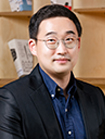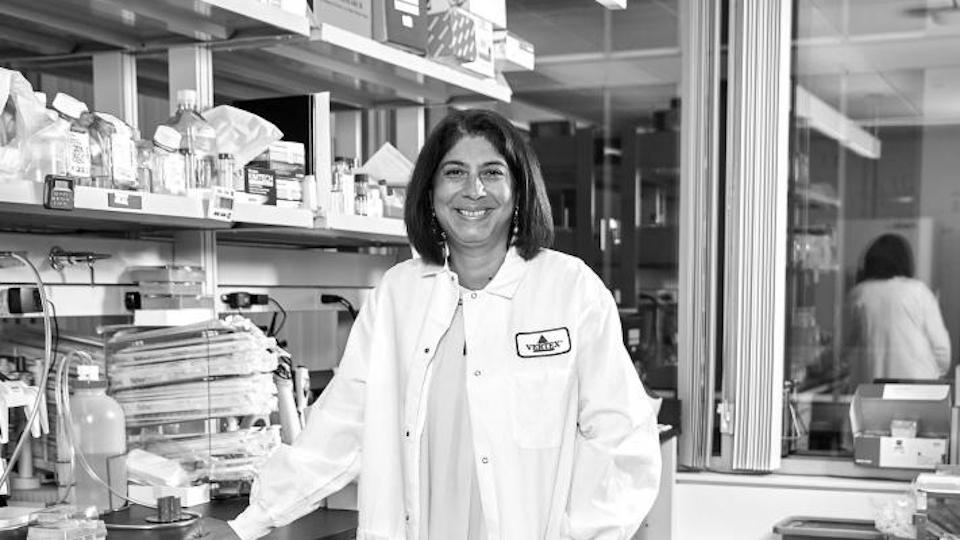Breaking into the global pharmaceutical market

In 2022, pharma is truly a global industry, and innovation can come from anywhere. But for small life sciences outside of the USA and Europe, it can still be challenging to break onto this global stage. However, with novel offerings targeted at wide-spread conditions, and with the right partnership strategies, it can be done. RudaCure is a four-year-old biotech company based in the South Korea, focusing on ocular disease and chronic pain with a pair of potentially first-in-class drugs. The company recently raised $16.5 million in Series A funding and has partnered with Hanlim Pharmaceuticals, a local pharma company, to develop and distribute its drug candidate for Dry Eye Disease. The company recently incorporated in the US and is participating in a MassChallenge accelerator programme via a partnership between MassChallenge, Korea’s Bio I-Corps programme and the Korean Innovation Center in Washington. They’ve also begun attending US-based events like JP Morgan, to start to make the connections that will help them sell and develop their products on a global scale. “In a situation where most of the development of treatments in Korea is mostly centred on cancer and metabolic diseases, I noticed that there weren’t any companies that were focusing on sensory diseases. That was how RudaCure was started,” CEO and cofounder Yong Ho Kim told pharmaphorum. “In Korea, it's very challenging to develop a sensory-specific drug, and also the venture capital or the investors are not very interested in those kinds of drugs. [So] we are trying to go for the international market.”
RudaCure’s key differentiators Kim says the Dry Eye Disease market is large and growing, with analysts predicting it will hit $6 billion USD by 2025. Currently it’s dominated by several offerings from major manufacturers. These steroidal eye drops work slightly differently, but they all require twice daily dosing over 12 to 24 weeks to see a result, and some patients even experience long term side effects such as pain from increased intraocular pressure when administering the drops. RudaCure’s offering, which is currently known as RCI001, has so far proved both faster and more effective, while being less painful than existing drugs in animal trials. South Korea’s Hanlim Pharmaceuticals has licensed the drug candidate and RudaCure aims to get approvals for both phase 1 clinical trials in South Korea and phase 2 clinical trials in the US this year. The company’s second drug candidate, RCI002, is focused on chronic pain. “Regarding RCI002, it is currently being developed as a non-opioid treatment for chronic pain,” Kim said. “Our product is in direct response to the current opioid crisis and is a solution we are currently working hard upon to help patients suffering from pain and the many inherited risks of opioid painkillers.” RCI002 inhibits the pain receptor TRPV1, an approach to pain management that has been tried without success for the past 20 years. (David Julius, who discovered TRPV1 in 1997, was recognized with Nobel Prize in Medicine last year for his work with TRP proteins). RudaCure hopes to launch phase 1 and 2 trials for RCI002 in 2023. Further on the horizon, the company is investigating treatments for wet age-related macular degeneration, metastatic cancer and complex regional pain syndrome, a rare disease. Early successes at home Even in the local sphere, getting its novel drug candidates closer to market was a challenge for the company. “Getting the initial approval by external evaluators for our Dry Eye treatment model for RCI001 was also very difficult,” Kim said. “Fortunately, with the help of eye disease experts, we were able to gain their help in conducting internal and external testing and evaluations to prove its effectiveness.” The difficulty in gaining approval turned out to be an unexpected blessing, as one of those experts would connect the company to Hanlim, its first pharma partner. “In early 2021, a scientific advisor who was impressed with RCI001, introduced us to several people from Hanlim,” Kim said. “This lead to several meetings and in recognition of RCI001’s excellent druggability, resulted in joint research partnership and investment.” Networking helped the company to secure its first big partner, as well as its Series A funding. Now, the company is trying to make contacts beyond South Korea’s borders. The leadership team has already ventured to Bio Europe 2021 and 2022, the JP Morgan Healthcare Conference in San Francisco, and is also planning to be at Bio USA 2022. They’re currently on the hunt for more global licensing partners for RCI001. Kim says that he attributes RudaCure’s success so far to two things – building a strong team, and staying focused on a few key objectives. “Everyone in our team is very valuable,” he said. “I think the most important thing is making a good team and also good communication within that team is very important. … We’re a small team, so we should focus on the same goal and achieve it together.” Moving to the global stage One of RudaCure’s most significant milestones has been being selected by South Korea’s Minister of Science & ICT to join the Bio Innovation Corps (I-Corps) 2021 programme, a programme that helps start-ups advance into overseas markets and build global networks. That programme led to enrolment in another programme: the Korean Innovation Center (KIC) DC Bio Accelerator programme. Run in conjunction with global innovation and entrepreneurship focused non-profit MassChallenge, the programme is explicitly aimed at helping connect Korean start-ups to the US market, as well as providing skill training and mentorship. “The style of the business in Korea and the US or UK can be different. We are now learning about the cultural differences about this new business,” Kim said. “Hopefully through MassChallenge, I think it will be very helpful for us to get an idea of how we're going to connect with people in the US and also other global companies to get a nice collaborator and supportive VC or investor, which will be very helpful for our future business.” Through these programmes, as well as by visiting conferences like Bio and JP Morgan, the company is seeking additional investors, co-development partners, and out-licensing opportunities for their product pipeline. They’re especially interested in finding partners to run US clinical trials. The JP Morgan meeting has already generated some interest from global pharma companies, Kim said. “They are very interested in our RCI001 project because they're looking for new direct candidate for dry eye disease, but we have only the pre-clinical dataset, so we keep continuing to discuss how we are going to get phase two efficacy dataset in the human subjects,” he said. In the meantime, the company is using other events to get the word out about their work. They’ll be presenting pre-clinical data about their Dry Eye Disease candidate at ARVO (Association for Research in Vision & Ophthalmology) 2022 Annual Meeting in May. Conclusion Drug development is never a swift process, and RudaCure still has many steps to take to bring its drugs to global markets. But thanks to a strong foundation of exciting, novel drug candidates and the help of investors, partners, and accelerators, Kim believes they’re well on their way. “I try to still have the attitude of a scientist,” he said. “We can fail, but we should fail a smarter way then we can achieve it faster. We have some experience now, and [we] can get more lessons in the future in the global market.” About the interviewee  Yong Ho Kim is the CEO and founder for RudaCure, and is also an Assistant Professor for the Department of Physiology at Gachon University. With over 20 years’ experience in studying physiology and pain and over 50 publications, Yong Ho has the scientific and technical knowledge to develop treatments for sensory diseases. Yong Ho’s research and academic experience includes a M.S & Ph.D. at Seoul National University, where he continued to be a Postdoctoral researcher there, before becoming a Postdoctoral scientist at Duke University Medical Center. With a broad experience in pain and medicine, Yong Ho founded RudaCure to help those suffering by creating and developing effective treatments for incurable diseases. About RudaCure
Yong Ho Kim is the CEO and founder for RudaCure, and is also an Assistant Professor for the Department of Physiology at Gachon University. With over 20 years’ experience in studying physiology and pain and over 50 publications, Yong Ho has the scientific and technical knowledge to develop treatments for sensory diseases. Yong Ho’s research and academic experience includes a M.S & Ph.D. at Seoul National University, where he continued to be a Postdoctoral researcher there, before becoming a Postdoctoral scientist at Duke University Medical Center. With a broad experience in pain and medicine, Yong Ho founded RudaCure to help those suffering by creating and developing effective treatments for incurable diseases. About RudaCure  RudaCure is a South Korea based clinical stage bio-pharmaceutical startup founded in 2018. To achieve the vision of creating a painless world for patients, RudaCure is developing innovative treatments for incurable diseases that will meet unmet demands in the market in the field of Sensory Diseases. RudaCure’s leading product in development RCI001, is an ophthalmic solution for the treatment of Dry Eye Disease looking to start Phase 1 trials in South Korea and Phase 2 FDA clinical trials by 2023. Next in the pipeline, is a non-opioid treatment for chronic pain looking to complete pre-clinical studies by 2024. While still only a young company, RudaCure is taking bold steps to expand and become a global pharmaceutical company by aiming to partner with other global pharmaceutical companies. RudaCure is also part of the KIC DC MassChallenge Bio Accelerator program to help the company breakthrough the US market with RCI001. For more information, visit rudacure.com
RudaCure is a South Korea based clinical stage bio-pharmaceutical startup founded in 2018. To achieve the vision of creating a painless world for patients, RudaCure is developing innovative treatments for incurable diseases that will meet unmet demands in the market in the field of Sensory Diseases. RudaCure’s leading product in development RCI001, is an ophthalmic solution for the treatment of Dry Eye Disease looking to start Phase 1 trials in South Korea and Phase 2 FDA clinical trials by 2023. Next in the pipeline, is a non-opioid treatment for chronic pain looking to complete pre-clinical studies by 2024. While still only a young company, RudaCure is taking bold steps to expand and become a global pharmaceutical company by aiming to partner with other global pharmaceutical companies. RudaCure is also part of the KIC DC MassChallenge Bio Accelerator program to help the company breakthrough the US market with RCI001. For more information, visit rudacure.com











